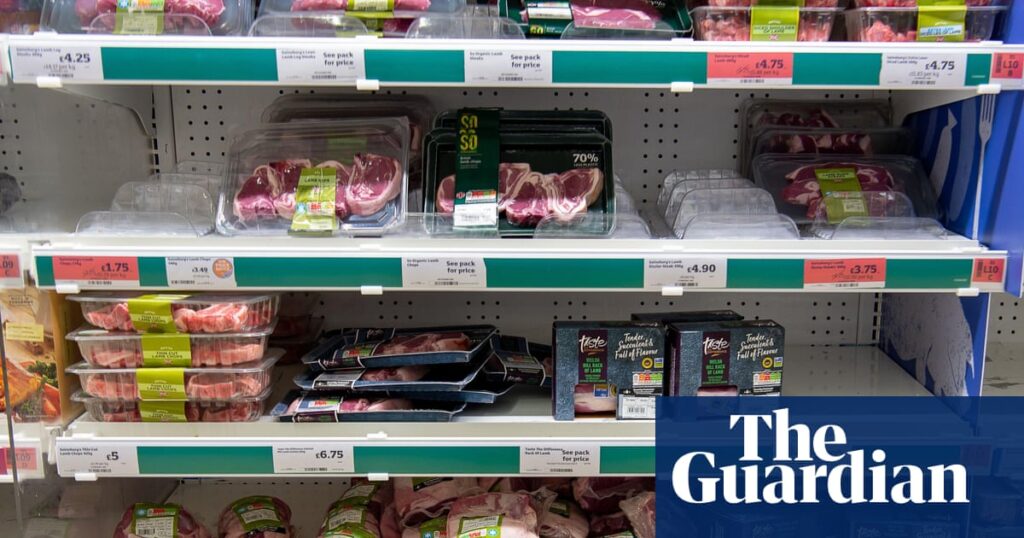Sharp rise in cost of British lamb in UK due to rising demand and import issues | Food & drink industry

The price of British lamb has hit an all-time high as cold weather and disease in the UK and difficulties with imports have combined with a surge in demand.
Wholesale prices have soared by more than 40% year-on-year to more than £8.50 a kg , while the amount of lamb expected to be produced in the UK this year is forecast to shrink by 1.4%, according to the Agriculture and Horticulture Development Board (AHDB).
Meanwhile, UK demand in the past three months is up by 8% after Easter and Eid, when families tend to make lamb a centrepiece dish. British supermarkets also face competition for local lamb from overseas buyers, with high demand in France.
David Swales, head of economic analysis at the AHDB, said that after 14 years at the agricultural body he had “never known a market like this”. He said lamb prices had risen so high that te group had been force to adjust its usual graphs.
“There is a perfect storm of issues coming together to create that market,” he said.
Cold and wet weather is thought to have led to more lambs dying in the early season, while there are fears about the impact of a wave of the deadly Schmallenberg virus in the south of England, Wales and the Midlands, Swales said.
The rising cost of British lamb comes as the price of its main competitor, New Zealand lamb, has fallen by about a fifth year-on-year to less than £3 a kg after a glut of Australian lamb on global markets and weak orders from China.
Lamb from Australia and New Zealand is also able to be sold more cheaply in the UK as a result of new trade deals which remove tariffs on a greater quantity of meat. However, imports have not risen as sharply as expected, with attacks by Yemen-based militants on Red Sea cargo ships delaying shipments.
The rapidly changing market has prompted Morrisons, the UK’s fifth-largest supermarket which is thought to buy more than 10% of British lamb, to drop a seven-year commitment to selling 100% British lamb.
Morrisons said it would “trial” selling New Zealand lamb in 39 stores later this week.
Industry experts said that other supermarkets with similar promises are likely to come under pressure to change. However, Waitrose, Marks & Spencer and the Co-op all said they had no plans to ditch their commitments to 100% British lamb.
“The trial follows an extensive exercise listening to customers who were very clear that they want us to sell lamb at a more accessible price all year round,” said a Morrisons spokesperson. “The blunt commercial reality is that New Zealand lamb is cheaper to source, and therefore cheaper to sell, than British lamb.
“We will remain 100% British lamb on all our butchers’ counters, and the New Zealand lamb will of course be clearly labelled so customers in these trial stores will see the difference and can make a choice.
after newsletter promotion
“We do not intend this move to mean a reduction in the overall volumes of lamb that we buy directly from British farmers.”
The NFU said it had written to the boss of Morrisons and other top retailers in April to secure a commitment to local sourcing in a move to maintain food production and safeguard security.
Its livestock board chair, David Barton, said: “It’s all the more disappointing that our own homegrown lamb is likely to be replaced by products from overseas with significant food miles and produced to potentially lower standards.”
Phil Stocker, the chief executive of the National Sheep Association (NSA), said the timing of the announcement alongside Rishi Sunak’s Farm to Fork Summit, an event designed to show support for UK agriculture, was “quite unbelievable”.
He added: “This is a very poor decision, and something NSA warned could happen during the negotiations around the new trade deals agreed with Australia and New Zealand last year.”
Source: theguardian.com

